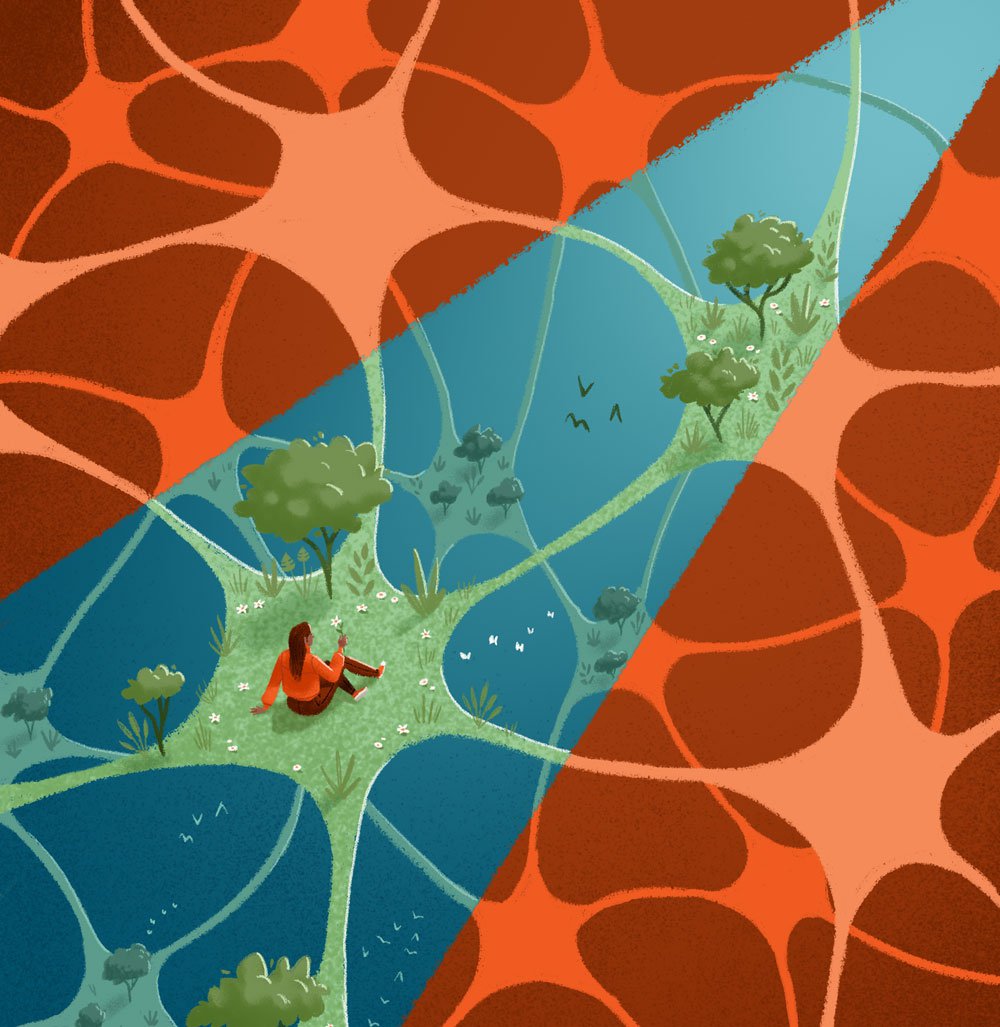result




TRANSLATIONAL RESEARCH

CHANGE OF MIND
Armed with philanthropy,
a surgeon builds a pain intervention pipeline
When a Houston Methodist patient with Parkinson’s disease experienced tightness and discomfort in his lower back, his primary care doctor and specialist team did what functional neurosurgeon and pain expert Dr. Amir H. Faraji would have hoped. Rather than solely prescribing medications, they referred the individual for deep brain stimulation (DBS) treatment. After electrodes were placed in targeted areas of his brain and delivered currents to modify abnormal neural activity, the patient’s body relaxed away from the typical stiffness of Parkinson’s disease. Standing straighter, he reported far less tremor and physical distress. His lower back pain lessened.
As a specialist in the Houston Methodist Department of Neurosurgery focused on improving the functioning of the nervous system, Dr. Faraji was thrilled by the result — but not surprised. “My passion,” he says, “is using DBS and other forms of neuromodulation to improve people’s quality of life.”
generous support fundS medical tools needed for clinical trials ... building results that allow researchers to seek industry and federal funding
In recent years, neural stimulation has emerged with great promise for treatment of multiple neurological, movement and mental disorders. First used in the 1980s to treat Parkinson’s disease and tremor, DBS and similar techniques involve altering nerve activity through the delivery of electrical stimulation to specific areas of the nervous system. Chronic pain, epilepsy and psychiatric disorders like depression and obsessive-compulsive disorder are being explored as areas in which patients could benefit from such neuromodulation therapies.
Dr. Faraji and his team are collaborating with Rice University and the University of Houston to understand how abnormal neuronal brain and spine signals can be altered using this approach. Currently, the Department of Neurosurgery is taking part in a study of DBS for treatment-resistant depression and will explore other concomitant conditions. There is growing effort in applying spinal stimulation to alleviate pain and disability as well. Dr. Faraji notes that managing either chronic pain or depression with neuromodulation can very likely improve many related conditions.

In a random sampling, 24% of U.S. adults said they suffer from chronic pain
2023 National Health Information Survey, Centers for Disease Control and Prevention
As research and treatment progress, these controlled applications of energy to the nervous system are proving to be a beacon of hope for patients who have exhausted traditional treatment options or are not candidates for major surgery.
“We’re trying to tie chronic pain treatment to what we already know about treating neurological conditions,” Dr. Faraji notes. “We’re aiming to treat the patient as a whole.”
With a recent gift from Blanca and Cavanaugh O’Leary, Dr. Faraji and his peers can begin to build a team for applying neuromodulation therapeutics across the nine-hospital Houston Methodist system. In particular, their generous support will be used to fund medical tools needed for clinical trials evaluating neurostimulation as a treatment for various conditions, building results that will allow researchers to seek industry and federal funding. It will also help lay the groundwork for physician education and a sought-after treatment network that Dr. Faraji foresees for both patients and physicians.
Without a doubt, neuromodulation represents a breakthrough in the treatment of a range of conditions associated with the brain and central nervous system. With the vital support from the O’Learys, these innovative therapies will offer new hope to patients with tremor, epilepsy, chronic pain and other neurological illness throughout the Houston Methodist system. As philanthropy helps to develop a pipeline of care outside the Texas Medical Center, we move closer to a world in which novel treatments for neurological disorders transform more lives in Houston and well beyond.
Discover More

